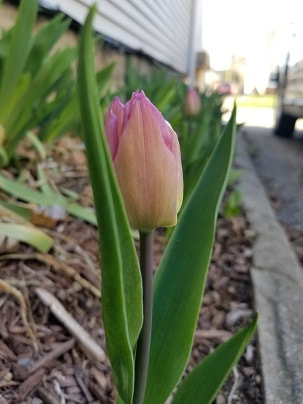|
By Maria Servold EPLA Editor Spring is a time of growth and fruitfulness. At Early Pregnancy Loss Association’s headquarters in Hillsdale, Michigan, the directors have recently taken several steps to expand and solidify our work. Most excitingly, the organization was able to move into a new, bigger space that will allow us to store supplies, conduct business, fulfill requests for care kits, and hold meetings all in one place. We look forward to working out of this location! EPLA is also in the process of hiring a part-time employee who will take over tasks like data entry, care kit mailing and organizing, care kit distribution tracking, etc. We are so happy to have someone dedicated to these tasks, which are currently shared by the board. Finally, we are glad to report that we created another 500 small miscarriage care kits in April, which were donated to Metro Detroit Share, who will distribute them as part of their own early loss bags all over metro Detroit. This is the second time EPLA has created 500 kits for MDS - the first donation was in July 2020. We are thrilled to work with MDS, as it allows us to help more women and families across the state of Michigan. We also hope to soon expand our care kit services into Northwest Ohio. 2021 is shaping up to be a year of growth and expansion for EPLA! As always, thank you for your support. If you would like to stay up to date about our growth and upcoming needs email us at [email protected] to be added to the mailing list! Maria Servold is an Editor at the EPLA, Assistant Director of the Herbert H. Dow II Program in American Journalism, and Lecturer in Journalism at Hillsdale College.
1 Comment
By Nick Carrington EPLA Editor Our culture struggles to comfort families who have suffered a miscarriage. One reason is that we have trouble empathizing. We expect to lose elderly loved ones at some point. Many children know what the loss of a grandparent feels like. Far fewer of us know how to nurse the wound of losing a child. We can’t fathom that level of ache - what it’s like to take the screws out of a crib. Even if we can imagine the loss of a child, the lack of interaction with a miscarried child makes it harder. The parents recognize the loss as what it is: the death of a person. The mother feels her child within her, or at least the sickness, tiredness, or other bodily changes that come with being pregnant. She bonds with her little one in a special way, the way only a mother can. Both the father and the mother dream of who that child will be. They think of holding that little one, clothing him or her, instilling wisdom and virtue. A father may read or sing to his child in the womb, hoping he or she will learn to recognize his voice. The parents love the child. Their child. But as friends and family, we don’t dream daily of that child. We never get to hold him or her. While we understand that little one is part of our family, we don’t feel it until we experience him or her for ourselves. So when there is a miscarriage, many loved ones struggle to empathize. It feels like an event without a category, something outside of our experience. It’s not. Not feeling the weight of reality doesn’t change reality. Our loved ones have lost a child and to mourn with them, we must work to empathize with them, recognizing the magnitude of that loss. To do otherwise is to fail to help the parents or give dignity to their child. To see and on some level, suffer that loss, we need to read stories of loss. We need to absorb the kind of language parents of miscarriage use. We need to listen to our loved ones when they are ready to talk. In doing so, we take a small part of their burden upon us. In tragedy, that may be all we can do. Nick Carrington is an Editor for the EPLA and Associate Professor of Professional Writing at Cedarville University
|
Archives
December 2023
Categories
All
|



 RSS Feed
RSS Feed